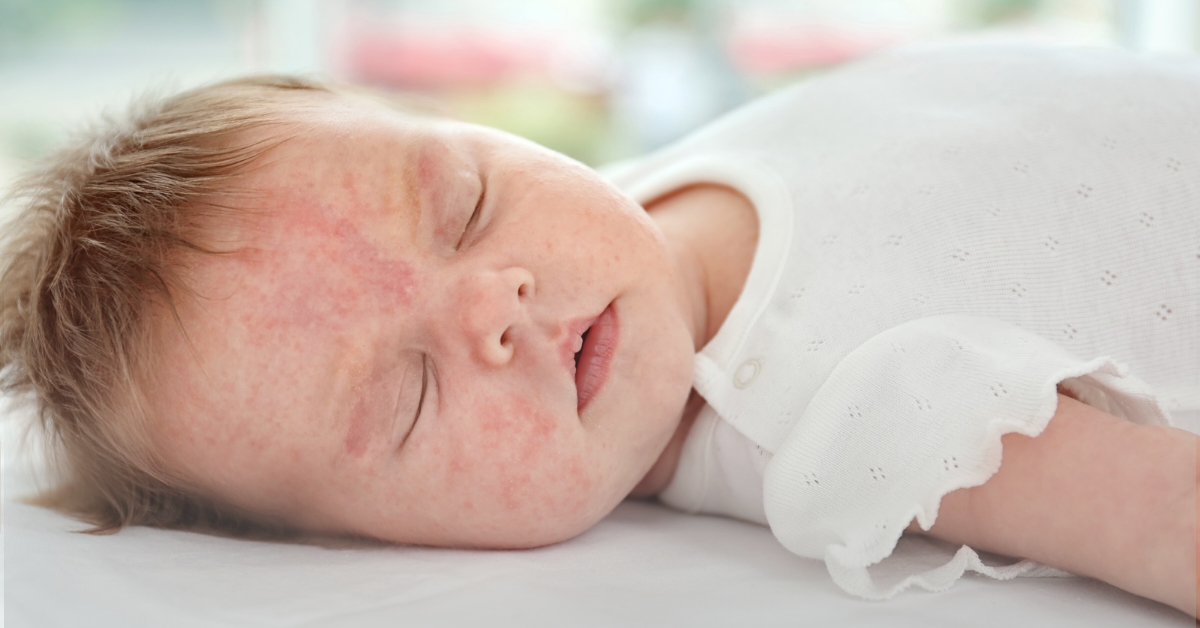Eczema, also known as atopic dermatitis, is a common skin condition in infants and young children. It is characterized by red, itchy, and inflamed skin, which can be distressing for both the baby and the parents. Understanding how to manage and treat baby eczema can help alleviate symptoms and provide relief. This article explores effective treatments, care strategies, and preventive measures to help you manage your baby’s eczema.
In this article:
Introduction to Baby Eczema
Eczema is a chronic skin condition that affects about 10-20% of infants. It typically appears within the first six months of life and can persist into childhood. The exact cause of eczema is unknown, but it is believed to be a combination of genetic and environmental factors. Babies with a family history of eczema, asthma, or allergies are more likely to develop the condition.
Identifying Symptoms
Recognizing the symptoms of eczema is crucial for early intervention and effective management. Common symptoms include:
- Red, Inflamed Skin: Patches of red or brownish-gray skin, often appearing on the face, scalp, arms, and legs.
- Intense Itching: Babies may scratch or rub their skin, leading to further irritation and possible infection.
- Dry, Scaly Skin: Affected areas can become dry, flaky, and rough to the touch.
- Oozing and Crusting: In severe cases, the skin may ooze clear fluid and form crusty patches.
Common Triggers
Identifying and avoiding triggers can help manage eczema flare-ups. Common triggers include:
- Irritants: Soaps, detergents, and certain fabrics (like wool) can irritate sensitive skin.
- Allergens: Dust mites, pet dander, pollen, and certain foods can trigger allergic reactions.
- Temperature Changes: Hot weather, sweating, and dry indoor air can exacerbate eczema symptoms.
- Stress: Emotional stress can contribute to flare-ups in some babies.
- Infections: Bacterial or viral infections can worsen eczema.
Treatment Options
Moisturizing
Overview: Keeping the skin well-moisturized is essential for managing eczema. Moisturizers help restore the skin barrier and prevent dryness.
Tips for Effective Moisturizing:
- Frequency: Apply moisturizer at least twice a day, especially after bathing.
- Type: Use thick, fragrance-free creams or ointments. Avoid lotions, as they may not be as effective.
- Application: Apply moisturizer to damp skin to lock in moisture.
Topical Steroids
Overview: Topical corticosteroids are commonly prescribed to reduce inflammation and itching during flare-ups.
Usage Guidelines:
- Prescription Strength: Use only as prescribed by your healthcare provider.
- Application: Apply a thin layer to the affected areas, avoiding healthy skin.
- Duration: Follow the recommended duration of use to avoid potential side effects.
Antihistamines
Overview: Oral antihistamines can help relieve severe itching and improve sleep.
Usage Guidelines:
- Consultation: Use under the guidance of a healthcare provider.
- Type: Non-sedating antihistamines are preferred during the day, while sedating antihistamines may be used at night.
Prescription Medications
Overview: In cases where eczema is severe or not responding to standard treatments, your doctor may prescribe stronger medications.
Options Include:
- Calcineurin Inhibitors: Non-steroidal creams that reduce inflammation.
- Oral Medications: Systemic treatments, such as immunosuppressants, for severe cases.
Daily Care Routine
Establishing a consistent daily care routine can help manage eczema symptoms and prevent flare-ups.
Bathing
- Frequency: Bathe your baby daily or every other day in lukewarm water.
- Duration: Keep baths short (5-10 minutes) to avoid drying out the skin.
- Products: Use mild, fragrance-free cleansers. Avoid soap and bubble baths.
Moisturizing
- Post-Bath: Apply moisturizer immediately after bathing to seal in moisture.
- Daily Use: Reapply moisturizer throughout the day as needed.
Clothing
- Fabrics: Choose soft, breathable fabrics like cotton. Avoid wool and synthetic materials.
- Washing: Wash new clothes before wearing and use fragrance-free detergents.
Preventive Measures
Taking steps to prevent eczema flare-ups can significantly improve your baby’s comfort and skin health.
Environmental Control
- Humidity: Use a humidifier to maintain moisture in the air during dry weather.
- Temperature: Keep your home cool and dress your baby in layers to prevent overheating.
Allergen Management
- Dust Mites: Use allergen-proof mattress and pillow covers. Wash bedding regularly in hot water.
- Pets: Limit your baby’s exposure to pet dander. Keep pets out of the baby’s sleeping area.
Diet
- Breastfeeding: If possible, breastfeed your baby to help build their immune system.
- Solid Foods: Introduce solid foods one at a time to monitor for potential allergic reactions.
When to See a Doctor
While many cases of baby eczema can be managed at home, some situations require medical attention:
- Severe Symptoms: If the eczema is severe, persistent, or worsening despite treatment.
- Infection Signs: If you notice signs of infection, such as increased redness, swelling, oozing, or fever.
- Allergic Reactions: If your baby has a reaction to a new food or environmental allergen.
- Unresponsive to Treatment: If over-the-counter treatments and home care are not effective.
Conclusion
Managing baby eczema involves a combination of identifying triggers, maintaining a consistent skincare routine, and using appropriate treatments. By understanding the condition and implementing these strategies, you can help alleviate your baby’s discomfort and improve their skin health. Always consult with a healthcare provider for personalized advice and treatment options tailored to your baby’s needs. With the right approach, you can effectively manage eczema and provide your baby with the relief they need.









